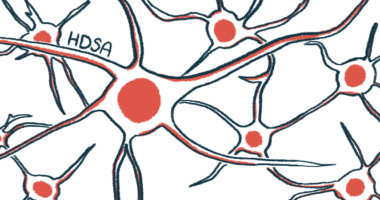Phase 2 Trial Recruiting Early-stage Huntington’s Patients to Test Neflamapimod for Improving Cognition

EIP Pharma is launching a proof-of-concept Phase 2 clinical trial to assess the ability of therapeutic candidate neflamapimod to treat cognitive dysfunction in patients with early-stage Huntington’s disease.
The trial (NCT03980938), which is currently recruiting, is taking place at the John Van Geest Centre for Brain Repair, University of Cambridge, in the U.K. More information on enrollment can be found here.
Cognitive deficits in Huntington’s disease, especially in a region of the brain called the hippocampus, are believed to precede the motor deficits that characterize the disease. The hippocampus is responsible for learning and memory.
Neflamapimod is an oral small molecule able to penetrate the brain that inhibits the enzyme p38-alpha, which normally is involved in regulating inflammation. However, in a disease context, it plays a major role in synaptic toxicity due to excessive inflammation, which causes the synapses to malfunction. A synapse is the junction between two nerve cells that allows them to communicate.
The Phase 2 study intends to enroll 16 patients with early-stage Huntington’s disease. Participants will be randomized to receive either 40 mg of neflamapimod twice daily or a placebo for 10 weeks. Following a wash-out period of eight to 12 weeks, participants will then cross over to the other arm of the study (either neflamapimod or placebo) and undergo treatment for another 10 weeks.
The study’s main objective is to determine whether neflamapimod can reverse cognitive dysfunction in the hippocampus, assessed using the virtual water maze test that evaluates spatial learning. In the virtual water maze test, participants navigate a small pool in a virtual room with a hidden platform after which their ability to return to the platform with varying visual stimuli is measured.
Additional tests include the Cambridge Neuropsychological Test Automated Battery (CANTAB), which include tests for executive function, learning and different types of memory, including visual and verbal, episodic memory, and working memory; attention, information processing, and reaction time; social and emotion recognition, decision-making and response control.
Working memory refers to a brain system that provides temporary storage and manipulation of the information necessary for complex cognitive tasks such as language comprehension, learning, and reasoning.
Initial data from the study are expected in the second half of 2020.
“We believe that neflamapimod has the potential to treat cognitive impairments associated with Huntington’s disease and can therefore benefit patients early in the course of their disease,” John Alam, MD, founder and CEO of EIP Pharma, said in a press release.
“The initiation of this trial represents an important milestone for EIP as we expand our development pipeline and seek to bring new treatment options to patients affected by CNS diseases,” Alam added.
Neflamapimod is also being tested in a Phase 2 trial (NCT02423122) in Alzheimer’s disease and has led to significant improvements in episodic memory function in patients with early disease.






